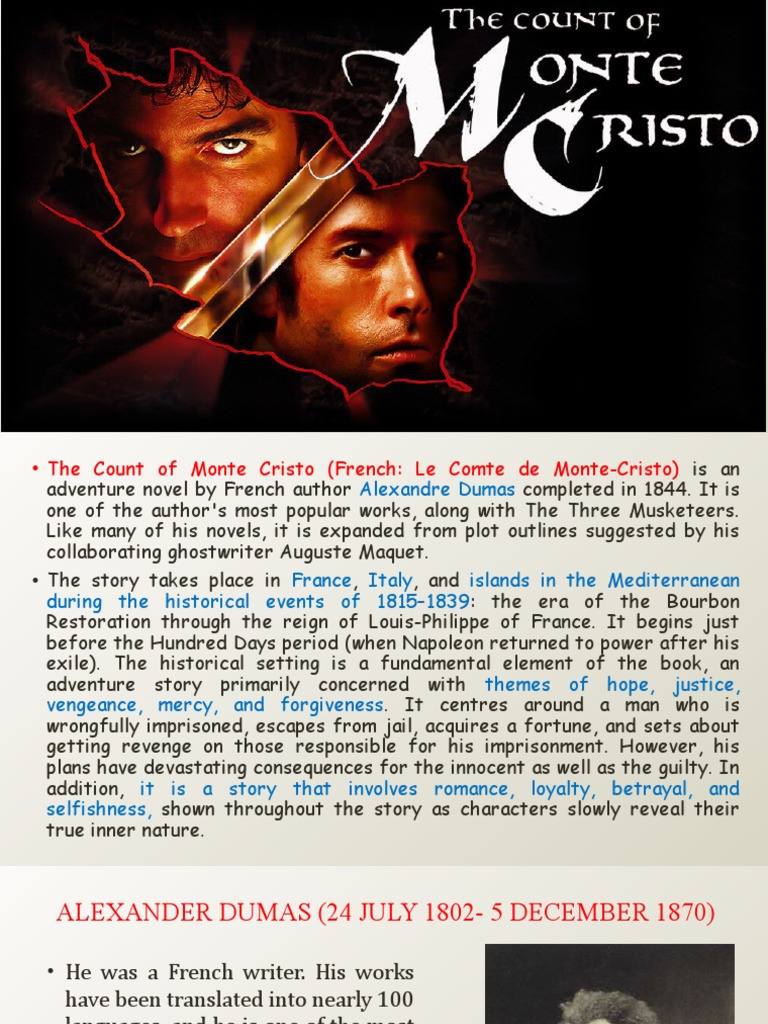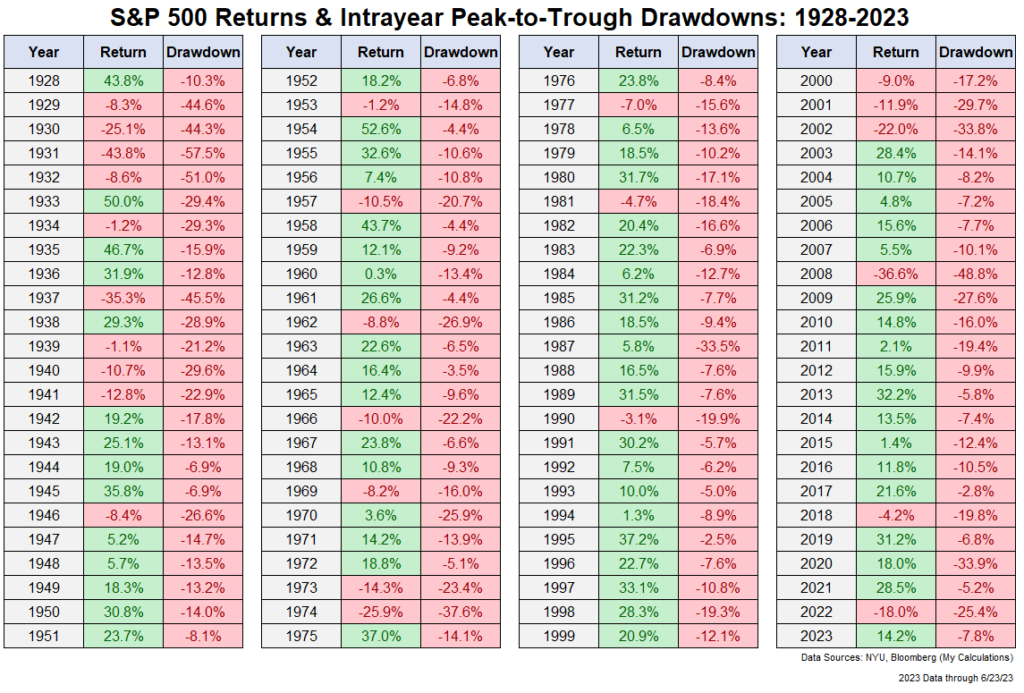A Critical Review Of The Count Of Monte Cristo: Revenge, Justice, And Adventure

Table of Contents
The Allure of Revenge: A Central Theme in The Count of Monte Cristo
Edmond Dantès's journey forms the emotional core of The Count of Monte Cristo. His transformation from a naive, hopeful young sailor to the cunning and vengeful Count is a compelling exploration of human nature pushed to its limits. The injustice he suffers – a false imprisonment orchestrated by jealous rivals – fuels his desire for retribution. This isn't simply a tale of revenge; it's a study of the moral complexities involved. Dumas doesn't shy away from depicting the psychological toll this obsession takes on Dantès, highlighting the blurring lines between justice and vengeance.
- Dantès's justifiable anger fueled by betrayal: The reader readily sympathizes with Dantès's initial outrage at the cruelty and injustice inflicted upon him. His betrayal by those he considered friends is a powerful catalyst for his transformation.
- The meticulous planning and execution of his revenge: The Count's methodical approach to revenge is a testament to his intellect and planning abilities. He meticulously orchestrates the downfall of each of his enemies, highlighting the cold calculation that underpins his actions.
- The psychological toll of his obsession with retribution: While the reader may initially support Dantès's quest for revenge, the novel also forces us to consider the cost. His obsession consumes him, altering his personality and potentially hindering his ability to find genuine happiness.
- The blurring lines between justice and vengeance in the novel: Dumas masterfully presents the moral ambiguity inherent in Dantès's actions. While his enemies deserve punishment, the methods he employs raise questions about the true nature of justice. Is it truly justice, or a twisted reflection of his own pain? This ambiguity is what makes the novel so enduringly compelling.
Justice Served, or a Twisted Form of It? Examining the Novel's Justice System
The Count of Monte Cristo serves as a powerful critique of the French justice system in the early 19th century. The novel highlights the inherent flaws within the system, showcasing how easily innocent individuals can be wrongly accused and imprisoned, while the guilty often escape unscathed. Dantès's initial imprisonment is a prime example of this systemic failure. The novel doesn't offer a simple solution, instead presenting a complex interplay of corruption, legal loopholes, and the fallibility of human judgment.
- The miscarriage of justice that initially imprisoned Dantès: This injustice serves as the central inciting incident of the entire narrative. It showcases the vulnerability of individuals facing a biased and corrupt system.
- The Count's methods of enacting "justice" on his enemies: While satisfying to witness, the Count's methods often border on cruel and manipulative. This forces the reader to question whether his actions represent true justice or merely a different form of revenge.
- The exploration of justice vs. revenge as a central conflict: The novel constantly grapples with this fundamental conflict, making it a morally complex and challenging read. Dantès's quest blurs the lines, making it difficult to definitively label his actions as either just or vengeful.
- The novel's critique of societal corruption and legal loopholes: Dumas uses the story to expose the pervasive corruption within the French justice system, highlighting the ease with which powerful individuals could manipulate the legal process for their own gain.
Adventure and Intrigue: The Thrilling Narrative of The Count of Monte Cristo
Beyond its exploration of revenge and justice, The Count of Monte Cristo is a captivating adventure story. Dumas masterfully crafts a plot filled with thrilling escapes, unexpected twists, and exotic locales. From the harrowing escape from the Château d'If to the acquisition of the Monte Cristo treasure, the narrative is packed with suspense and intrigue.
- The thrilling escape from Chateau d'If: This escape sequence is a pivotal moment, showcasing Dantès's resourcefulness and determination. It marks a turning point in his transformation and sets the stage for the rest of his vengeful plot.
- The acquisition of the Monte Cristo treasure: The discovery of the treasure is a crucial element that enables Dantès to execute his elaborate plan of revenge. It also symbolizes his rise from despair to power.
- The intricate web of relationships and betrayals: The novel features a complex cast of characters connected by a web of intertwined relationships and betrayals, adding layers of intrigue and suspense.
- The suspenseful and unpredictable nature of the plot: Dumas keeps the reader guessing until the very end, masterfully weaving together plot threads and creating a narrative that's both exciting and unpredictable.
The Enduring Legacy of The Count of Monte Cristo
The Count of Monte Cristo continues to captivate audiences worldwide, inspiring numerous adaptations across film, television, and theater. Its enduring appeal stems from its timeless themes of betrayal, revenge, redemption, and the enduring human struggle for justice. The novel explores universal themes that resonate with modern audiences, making it as relevant today as it was when it was first published.
- Numerous adaptations across film, television, and theater: The novel's enduring popularity is evidenced by the numerous adaptations throughout history, demonstrating its enduring appeal and influence.
- The enduring themes of betrayal, revenge, and redemption: These timeless themes continue to resonate with readers, exploring universal human experiences that transcend time and culture.
- The novel's exploration of timeless human experiences: The themes of betrayal, forgiveness, and the search for justice are universal and continue to hold relevance for modern audiences.
- Its influence on subsequent adventure and revenge narratives: The Count of Monte Cristo has significantly influenced subsequent adventure and revenge stories, establishing many of the tropes and conventions used in the genre.
Conclusion
The Count of Monte Cristo is more than just a thrilling adventure; it's a profound exploration of revenge, justice, and the human condition. Dumas masterfully weaves together a captivating plot, memorable characters, and thought-provoking themes that continue to resonate with readers today. The novel's enduring popularity stems from its intricate plot, morally ambiguous characters, and the timeless struggle between justice and revenge.
Call to Action: Have you experienced the gripping tale of The Count of Monte Cristo? Share your thoughts on its themes of revenge and justice in the comments below! If you haven't yet delved into this classic adventure, now is the perfect time to embark on this unforgettable journey.

Featured Posts
-
 Live Tv Drama Young Contestant Leaves Britains Got Talent
May 05, 2025
Live Tv Drama Young Contestant Leaves Britains Got Talent
May 05, 2025 -
 French Defense Policy A Lack Of Public Accountability
May 05, 2025
French Defense Policy A Lack Of Public Accountability
May 05, 2025 -
 Why Did Teddy Magic Leave Britains Got Talent Simon Cowells Surprise
May 05, 2025
Why Did Teddy Magic Leave Britains Got Talent Simon Cowells Surprise
May 05, 2025 -
 Gold Market Update Two Weeks Of Losses For 2025
May 05, 2025
Gold Market Update Two Weeks Of Losses For 2025
May 05, 2025 -
 Carte Ufc Des Moines Mise A Jour Sidey Et Robertson Du Canada Presents
May 05, 2025
Carte Ufc Des Moines Mise A Jour Sidey Et Robertson Du Canada Presents
May 05, 2025
Latest Posts
-
 Verstappens Baby News First Child Born Ahead Of Miami Gp
May 05, 2025
Verstappens Baby News First Child Born Ahead Of Miami Gp
May 05, 2025 -
 Miami Grand Prix Verstappens New Role As A Father
May 05, 2025
Miami Grand Prix Verstappens New Role As A Father
May 05, 2025 -
 Verstappen Announces Birth Of First Child Before Miami Grand Prix
May 05, 2025
Verstappen Announces Birth Of First Child Before Miami Grand Prix
May 05, 2025 -
 Max Verstappen Welcomes First Child Before Miami Grand Prix
May 05, 2025
Max Verstappen Welcomes First Child Before Miami Grand Prix
May 05, 2025 -
 F1 Star Max Verstappen Becomes A Dad
May 05, 2025
F1 Star Max Verstappen Becomes A Dad
May 05, 2025
